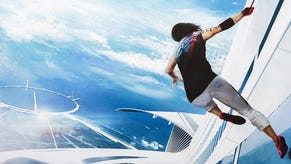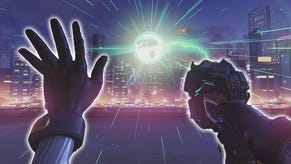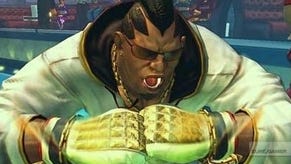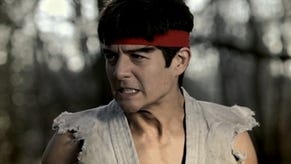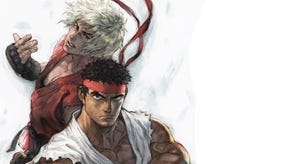Super Man
Yoshinori Ono on making Street Fighter IV super.
"To be honest, I don't think I've really got anywhere. Seeing all these people playing here is great but I don't feel like we've arrived yet." What's the vision he's after then, I wonder? "In all honesty, while Street Fighter IV has been a huge success," he explains, "the fighting game still has not reached the heights of popularity it enjoyed in the late eighties or early nineties. Until I see all gamers playing fighting games again, I'm not going to stop pushing on."
Ono's quest for mainstream, widespread adoption of the game and the genre it spearheads may have something to do with his own abilities at Street Fighter, which are unexpectedly average. Midway through the interview he invites me to spar with him, and, while I'm an intermediate player at best, I win every match.
There's not a hint of embarrassment to Ono in loss. He belly laughs every time I perform a reversal, slapping his leg with each KO. When, after taking the final round from him I pull out a camera to capture the moment for posterity, he leans into shot, pretending to strangle his own neck in shame, smiling eyes assuring the joke. I wonder if his own approach to the game, which seems to favour fun over technical mastery, has in any way coloured Super Street Fighter IV.
"You know, Street Fighter IV is not tailored for the hardcore players. Before we even started work on the first game we knew that we simply wouldn't surpass the success of Street Fighter III: Third Strike in that regard, because it's a game explicitly made for hardcore fighting game fans.
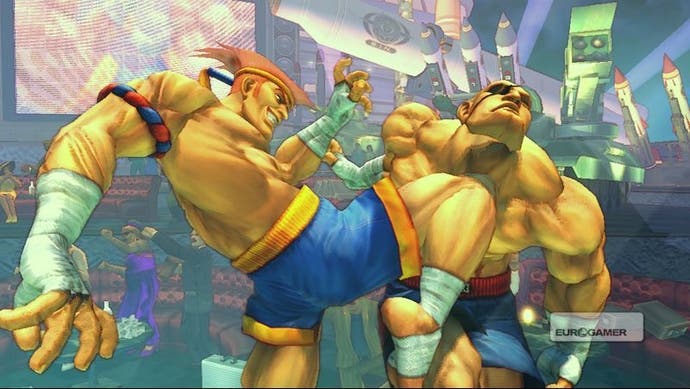
"We wanted to broaden the audience and we wanted people to casually think: 'Oh! That's the sequel to Street Fighter II - let's play that'. So yes, I think something of that has informed the design template for the game.
"This is the same reason Street Fighter IV hasn't performed as well as, say, the recent Tekken or Virtua Fighters in arcades. Our intention was never to sweep the arcade scene in Japan, which is split into super hardcore fighting game players and super casual fruit machine players. There's nothing in between. Street Fighter IV has been about reclaiming that middle audience, not just appealing to the pros."
Ono's assessment certainly correlates with that of Daigo Umehara, whom I interviewed last year. Despite being the top Street Fighter IV player in the world, he maintains a generally cool attitude towards the game, complaining that he thinks it favours defensive play.
"Yes, that is kind of true, but it didn't turn out like that by accident," Ono concurs. "We wanted to make a point. In my opinion, Street Fighter III: Third Strike became too much of an instinctive game. There's very little room to think.
"By contrast, in Street Fighter IV if you are under pressure or don't know what you're doing you can step back and give yourself time to work out what to do next. There's breathing space to make strategy, even when under pressure. That said, I believe we have made Super Street Fighter IV a more offensive game, but without discarding that original aim."

